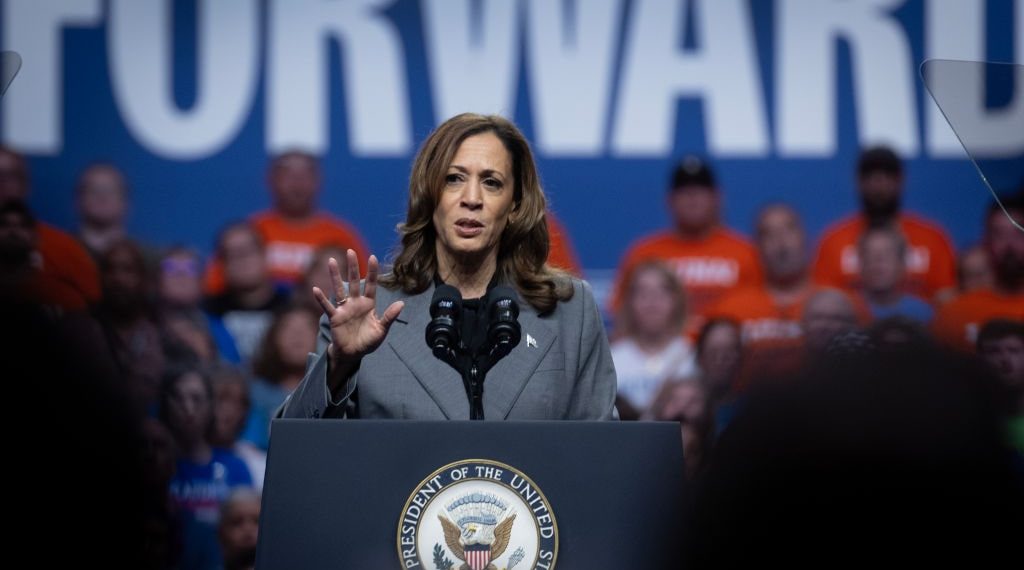- Gold SKYROCKETED during Trump’s first term and is poised to do it again. Find out how Genesis Precious Metals can help you secure your retirement with a proper self-directed IRA backed by physical precious metals.
The Democratic nominee delivered another presentation of her economic agenda on Sept. 25. This time, Vice President Kamala Harris spoke at the Economic Club of Pittsburgh for roughly 40 minutes to discuss how a strong middle class will be the defining achievement of her presidency and how her brand of economics is “fundamentally different” from former President Donald Trump.
Kamala Harris and Big Business
Kamala Harris accused her Republican challenger of being “only interested in making life better for himself and people like himself, the wealthiest of Americans.” The vice president explained that she is “a capitalist” who champions “free and fair markets,” describing her policies as pragmatic rather than ideological. The economy, Harris said, works best when it works for those who build, wire, and clean skyscrapers.
Comical remarks aside, what public policy proposals did Harris champion in her widely anticipated speech? More of what has been delivered over the last three-plus years. Most notably, Harris wants to extend tax credits to manufacturers to rebuild or retool existing factories and offer new government-funded investments in various industries, such as aerospace, artificial intelligence, bio-manufacturing, and green energy. This is presently happening as the current administration has extended hundreds of millions of dollars to some of the biggest brands in the world, such as Ford, General Motors, and Harley Davidson, to keep at-risk facilities open.
Harris pivoted to Trump’s proposals, arguing that he “has no intention of lowering costs for the middle class” and his plans “would actually raise prices.” She also slammed his economic record as president, telling the crowd that “offshoring went up” and “almost 200,000 manufacturing jobs were lost during his presidency, starting before the pandemic hit, making Trump one of the biggest losers ever on manufacturing.”
The former is accurate, as offshoring increased under the 45th president based on the Department of Labor’s Trade Adjustment Assistance (TAA) program. However, the latter is incorrect, as domestic manufacturing jobs surged before the coronavirus pandemic. From January 2017 to February 2020, the US manufacturing sector added 414,000. It was not until May 2022 that these positions were recovered. Since then, US manufacturing payrolls have been flat, and the industry has even shed more than 44,000 jobs this year. […]
— Read More: www.libertynation.com


